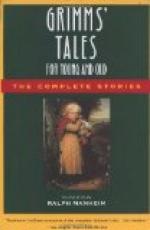The sound of a silver bell, heard from a chamber close by, took away Sophia from her occupation. She rose hastily, saving, ’My mother! oh, my poor mother! Adieu for a while, Edoardo.’
Edoardo Valperghi was the son of a wealthy Venetian merchant. He had received a grave but unprofitable education, it being that which is wholly directed to the intellect and nothing to the heart. He was studying in one of those colleges in which the system of education is as old as the walls of the edifice. He had been told that he had a heart, but no one had spoken of how it was to be directed to good. He had been told that he must resist his own passions, but no one had shown him what arms to make use of in this moral warfare. He had been told to love virtue and to hate vice, but no one had furnished him with a criterion for distinguishing true virtue from its counterfeit. The temper of Edoardo was ardent and hasty, but flexible and weak. Nature had made him good, but society could make him very bad. He was like a ship without a good pilot—one to become good or bad according to circumstances. Enthusiastic, easily impressed by example, he would be most virtuous if his first steps had moved among the virtuous; if among the wicked, he would rush to perdition.
A letter of recommendation to the father of Sophia, who had formerly had some commercial dealings with the Valperghi, introduced him into the house. His timidity made him prefer that family to richer ones with which he was also acquainted, and amongst whom he could have found youths, amusements, and habits similar to those he had left behind in Venice. But Sophia, lovely, amiable, and frank, had shown him the affection of a sister. He had soon conceived a passion for her; declarations of love, promises, oaths, everything had thus been impetuous and sudden with him, as his disposition prompted. The inexperienced girl believed that a sentiment so strong, so ardent, must be equally profound and constant, and yielded to the enchantment of a first love. Edoardo had terminated the first year of his legal studies, and was now preparing to return to Venice.
Alberto Cadori, the father of Sophia, was also a merchant. He had begun business in a small sphere; but having guided his industry prudently, from being poor he had gradually become rich, and at length retired from commerce with a considerable fortune. Cadori was avaricious, harsh, exacting: he wished rather to be feared than loved: he was not the father, but the tyrant of his family. There was seemingly some secret cause of disagreement between him and his wife: it was perhaps for this reason that he did not love his children; but what it was no one could tell. His family was now limited to Sophia and his wife. He had had another daughter, fair and amiable as Sophia; but the sad school of the world, and the all-powerful empire of love, had untimely laid her low. The Signora Cadori, though still young, was already on the brink of the grave. The grief that preyed on her life, and especially the lamentable end of her first-born, had brought on paralysis. She could no longer move without assistance.




